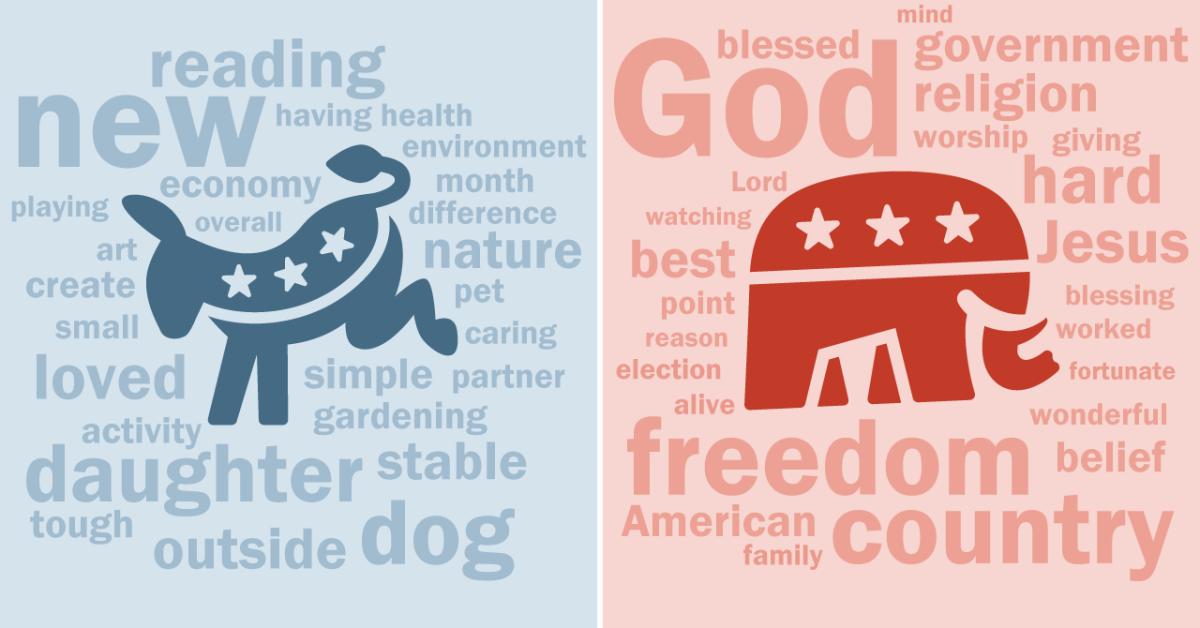Much can be explained by a simple premise: the left is stupid, and the right is smart.
This is more or less understood, at least by the right, in such sayings as “If you are not a liberal at 25, you have no heart. If you are not a conservative at 35, you have no brain.”
Conservatives think the average leftist is naïve, not evil. Therefore, they tend to be more tolerant. The left thinks the right is not stupid, but evil. Therefore they will fight no holds barred.
One might object that the left is favoured by the expert class and by the professions. By the better educated. University faculties are all leftist. So surely this is the smarter side?
It does not follow. One cannot, after all, fail more than a relatively small number of students in any programme; especially when they are paying large amounts of money for the course. Necessarily, therefore, academics are geared towards those of average intelligence. Granted that a somewhat higher level of intelligence will allow one to get through with less effort; but there is a ceiling. Too smart, and the plodding pace of instruction will, literally, drive one to distraction. The too-intelligent will lose interest, lose concentration, fail or drop out.
Education at all levels is essentially obedience school. Can you follow directions and submit to authority?
This might sound like sour grapes; but it is not. It is the observation of someone holding multiple certificates and degrees.
A better clue to who it smarter is who favours meritocracy. Obviously, the smartest will prefer meritocracy, on average, because it is in their self-interest.
That would be the right. The left wants equity.
In a similar vein, quite visibly, really good-looking women tend to be conservative. Leftist women are rarely as attractive. It makes sense.
Successful politicians sometimes play dumb and folksy. Trump does; George W. Bush did. Reagan did. Ralph Klein did; Mike Harris did; Jean Chretien did. This is just good politics; it shows their intelligence. People often resent those more intelligent than they are.
But notice that these supposedly dumb politicians are the very ones who manage to achieve a great deal of their agenda. The proof is in the pudding: they are smart.
By comparison, Democratic leaders seem genuinely dumb: Kamala Harris, the senile Joe Biden, John Fetterman. How is it they cannot put forward more impressive intellects?
Because intelligent people rarely join their party.
Canada’s Liberals do not have the same problem—but this is because they are the “Natural Governing Party.” They will attract top talent for purely cynical reasons: because they are the likeliest path to power. This is due to tribal rather than ideological voting, notably in Quebec. In the US, similarly, voting used to be more tribal, not ideological. In those days one did encounter more capable Democratic candidates.
The best proof that the left is dumb is that their basic ideological premise is dumb. They believe that government is protection from greedy and bullying capitalists, corporations and religious groups. It does not occur to them that governments or government bureaucrats could also be greedy or power-hungry.
And not even just as likely. We have a natural protection against greedy or power-hungry corporations: we can choose not to buy. We have no such protection from government. We cannot choose not to pay our taxes, or obey the law.
An amusing recent example: the NDP’s recent campaign blaming inflation on corporate greed. Their proof that Loblaw’s was price-gouging was that you could buy the same items for less in Dollarama. So why couldn’t they simply shop at Dollarama?
Even if the NDP leadership was smart enough to realize this, they were counting on their constituency not to see it.































